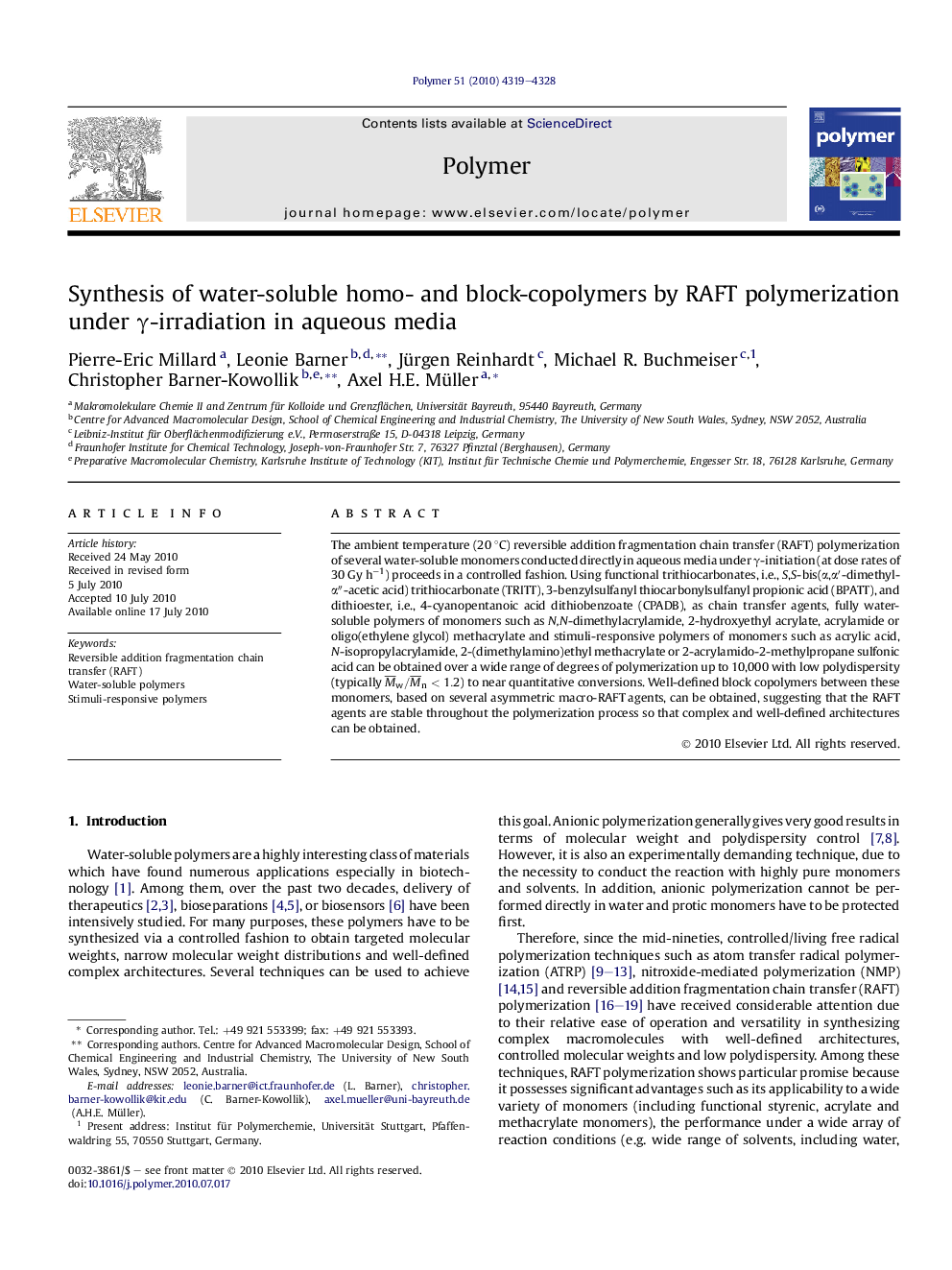| Article ID | Journal | Published Year | Pages | File Type |
|---|---|---|---|---|
| 5185309 | Polymer | 2010 | 10 Pages |
The ambient temperature (20 °C) reversible addition fragmentation chain transfer (RAFT) polymerization of several water-soluble monomers conducted directly in aqueous media under γ-initiation (at dose rates of 30 Gy hâ1) proceeds in a controlled fashion. Using functional trithiocarbonates, i.e., S,S-bis(α,αâ²-dimethyl-αâ³-acetic acid) trithiocarbonate (TRITT), 3-benzylsulfanyl thiocarbonylsulfanyl propionic acid (BPATT), and dithioester, i.e., 4-cyanopentanoic acid dithiobenzoate (CPADB), as chain transfer agents, fully water-soluble polymers of monomers such as N,N-dimethylacrylamide, 2-hydroxyethyl acrylate, acrylamide or oligo(ethylene glycol) methacrylate and stimuli-responsive polymers of monomers such as acrylic acid, N-isopropylacrylamide, 2-(dimethylamino)ethyl methacrylate or 2-acrylamido-2-methylpropane sulfonic acid can be obtained over a wide range of degrees of polymerization up to 10,000 with low polydispersity (typically M¯w/M¯n<1.2) to near quantitative conversions. Well-defined block copolymers between these monomers, based on several asymmetric macro-RAFT agents, can be obtained, suggesting that the RAFT agents are stable throughout the polymerization process so that complex and well-defined architectures can be obtained.
Graphical abstractDownload full-size image
